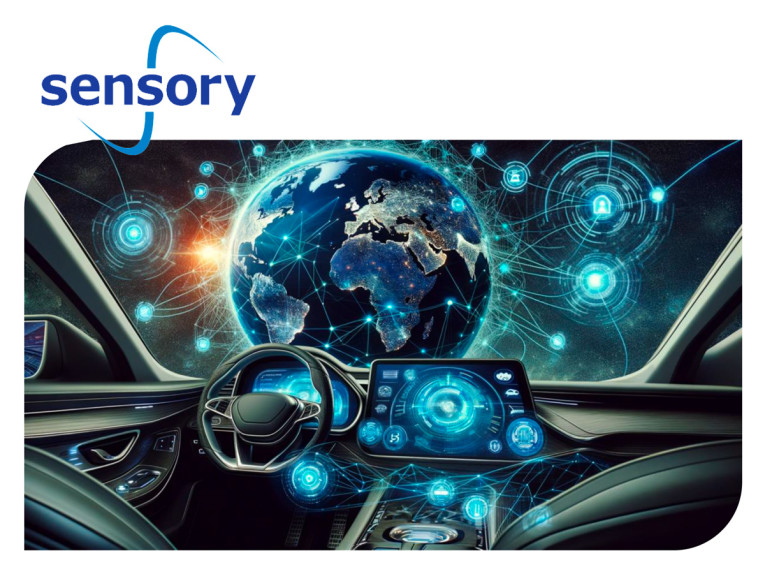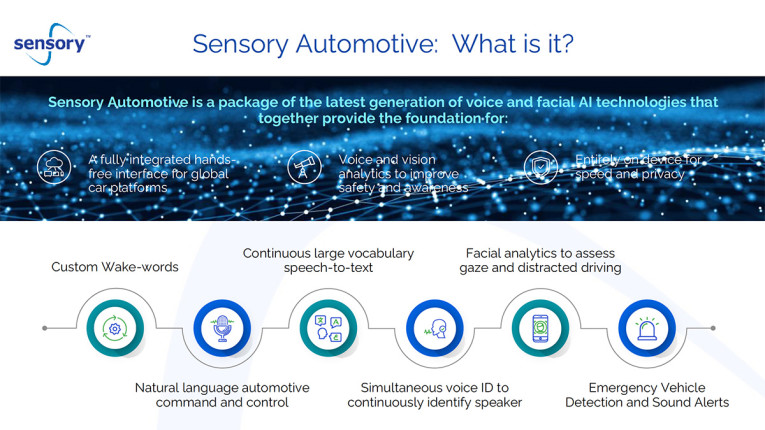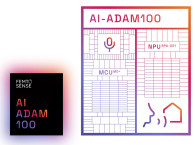
Every company that pioneered and pushed voice recognition/control and more importantly those that developed key technology-blocks for personal voice assistants, have quickly realized how depending on cloud-connectivity was not sustainable for the foreseeable future, but also that the future would depend on the advancement of edge-AI. And then, the large language models that enabled generative AI were released, and suddenly the priorities have shift for all the technology players. Sensory, is clearly at the heart of this critical transition.
Sensory is now promoting its cutting-edge technology as an “on-device AI platform,” but expanding the scope of applications beyond pure voice interactions and towards seamlessly integrating voice and vision capabilities, which are particularly important for automotive applications. For CES 2024, Sensory is promoting its new embedded AI platform including access to on-device large language models designed for automotive applications and control.
The new platform, dubbed Sensory Automotive, is a package of the latest generation of voice and facial AI technologies that together provide the foundation for continuous large vocabulary speech-to-text and facial analytics to assess gaze and distracted driving. Combining custom wake-words with natural language automotive command and control features, simultaneous voice ID to continuously identify speakers inside the vehicle, Sensory Automotive delivers a fully integrated hands-free interface for global car platforms, running entirely on device for speed and privacy.
As its pioneering efforts in custom wake words have demonstrated, Sensory is committed to customization and personalization, allowing users to effortlessly issue natural language commands and control mechanisms, making driving more intuitive and enjoyable. But now, Sensory is migrating the whole concept to run purely on-device, with improved interactions, such as adding sound identification for Emergency Vehicle Detection and Sound Alerts.
“We've engineered an unparalleled AI automotive platform that ensures not just a safer driving environment but also a truly personalized user experience," emphasized Todd Mozer, Sensory's CEO and founder. "Our on-device solution, featuring an exclusive custom wake word, marks a transformative step towards redefining how individuals interact with their vehicles."
Beyond voice commands, the platform employs AI camera technology to detect driver drowsiness, distraction levels, and even tracks the driver's focus. Biometric features like facial or voice recognition ensure secure and personalized interactions within the vehicle. With support for over 35 languages and compatibility with various operating systems, the platform incorporates Natural Language Understanding (NLU) to accurately discern user intentions.
Moreover, the platform integrates Sensory’s Sound ID technology to identify critical external sounds like emergency vehicle sirens while driving. While parked, it can recognize sounds like barks, cries, or glass breaks, notifying users via mobile phone to ensure heightened awareness and safety.

In a digital age where, as Jen Caltrider from Mozilla remarks, "All new cars today are privacy nightmares on wheels that collect huge amounts of personal information," Sensory's dedication to privacy is a major architectural benefit - when recognized by automakers as such.
“Our on-device speech-to-text and text-to-speech engines are designed to deliver exceptional accuracy and maintain a compact footprint, with the entire suite requiring as little as 200MB and the speech-to-text component alone just 20MB. This level of efficiency is achieved without sacrificing performance, while addressing the privacy concerns prevalent in today's automotive technology. These functions can also be combined with cloud-based large language models for random queries, purchases, and standard offerings from various cloud models,” Mozer adds.
“Sensory's automotive platform not only sets new benchmarks in accuracy and efficiency but also champions data privacy and in-car control. Our aim is to seamlessly complement cloud-based voice assistants while empowering automakers with complete control over in-car commands and data.”
In order to please all requirements from automakers, Sensory's platform is designed for integration with leading voice assistants like Google Assistant, Siri, and Alexa. This integration ensures seamless collaboration with existing voice assistants through intelligent handoffs and cognitive arbitration using multiple wake words. According to Sensory, the platform's exceptional performance and reliability are evident in its compliance with Apple's stringent requirements for Enhanced Siri, specifically tailored for the automotive sector.
“Sensory's commitment to providing a comprehensive, tailor-made solution is evident in its willingness to collaborate with OEM partners, positioning the company at the forefront of automotive technology trends,” Mozer concludes.
www.sensory.com







